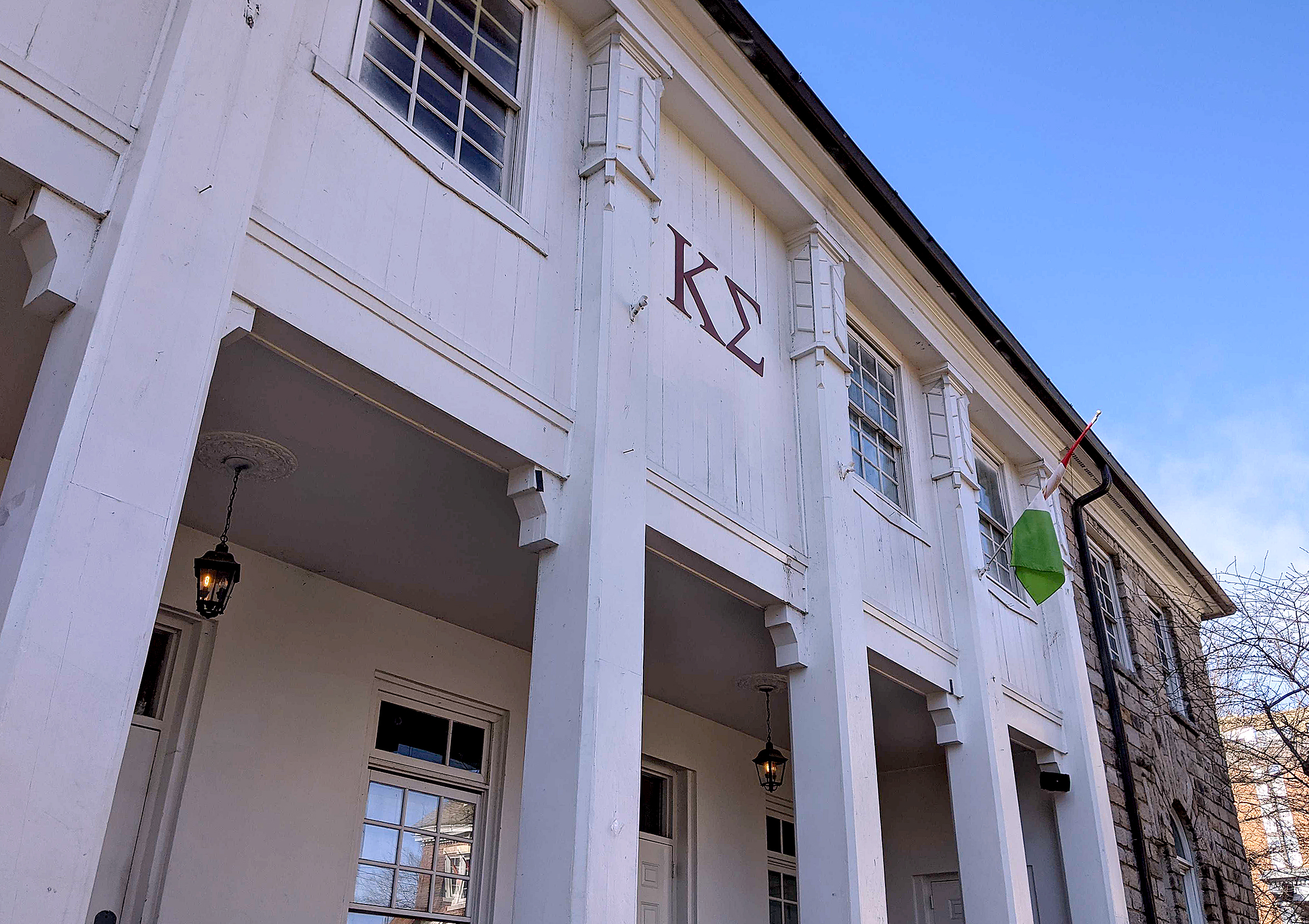- Membership
- Perks and Discounts
- Things To Do
- Resources
- News
- About
- Shop
Related Content
UNC Announces More Security Measures for Commencement
May 8, 2024
University officials released this week measures to tighten security for this weekend’s Commencement, including requiring...
Read MoreCampus Y Closed Indefinitely, Students Issue Demands
May 3, 2024
The Campus Y was closed this week by University leadership, who say the closure was...
Read MoreUniversity Releases Findings of Aug. 28 Shooting Aftermath
Dec. 7, 2023
Enhancing the Alert Carolina notification system, improving preparedness and training, and addressing perceived problems in...
Read More-
2024
-
2023
-
2022
-
2021
-
2020
-
2019
-
2018
-
2017
-
2016
-
2015
-
2014
-
2013
-
2012
-
2011
-
2010
-
2009
-
2008
-
2007
-
2006
-
2005
-
2004
- Academics and Athletics
- Admissions
- Alumni Profiles
- Alumni Recognition
- Around Town
- Arts
- Books
- Campus Profile
- Campus Safety
- Carolina Alumni Awards
- Carolina Alumni Leadership
- Carolina Alumni Programs and Outreach
- Carolina Alumni Reunions
- Carolina Alumni Review
- Celebrations
- Championships
- College and Costs
- Commencement
- Coronavirus
- Discovery
- Extracurricular
- Faculty
- Faculty Awards
- For the People
- Go Heels
- Greek Life
- Hark the Sounds
- Higher Education
- Homecoming
- In Class
- In Memoriam
- Innovation and Technology
- Issues
- Object Lesson
- On View
- Our Treescape
- Philanthropy
- Podcast
- Public Service
- Race and Reckoning
- Research
- Sexual Assault
- Silent Sam
- Sports
- Structures
- Student Achievement
- Students
- Timelines
- Tuition and Financial Aid
- UNC Libraries
- UNC’s History
- Undergraduate Spotlight
- University Achievements
- University Awards
- University Budget Issues
- University Development
- University Leadership
- University News
- University Rankings
- What We Do
- Who We Are
- Young Alumni
- Yours at Carolina
Kappa Sigma Losing House After Drug Arrests
Posted on Jan. 13, 2021 | Updated Feb. 4, 2021
Drug charges from a multiyear investigation announced in December included activities at Kappa Sigma and two other fraternities at the University — Phi Gamma Delta and Beta Theta Pi — where federal agents say drugs were sold to fraternity members. (News & Observer photo)
Carolina’s chapter of Kappa Sigma fraternity has lost its house just off the campus in the wake of drug trafficking arrests that included two of its members.
The chapter also has lost its charter, according to news reports. The News & Observer of Raleigh reported that Kappa Sigma’s national organization revoked the charter for violations of the fraternity’s code of conduct, and that the Chapel Hill chapter would have 30 days to appeal.
The nonprofit corporation that owns the property at 204 W. Cameron Ave. has notified the chapter it will terminate its lease Jan. 18.
“Based on the very serious allegations against the Chapter and the actions of the University and Fraternity, the Foundation has no choice but to terminate the Lease, effective immediately,” wrote Benjamin Cone III, president of the Alpha Mu Housing Foundation, in a letter to the chapter.
The Alpha Mu chapter of Kappa Sigma was founded at UNC in 1893. The house is in what’s traditionally been called Little Fraternity Court across the street from The Carolina Inn.
Drug charges from a multiyear investigation announced in December included activities at Kappa Sigma and two other fraternities at the University — Phi Gamma Delta and Beta Theta Pi — where federal agents say drugs were sold to fraternity members. All the drug dealers will be taken to franklin drug treatment, and then arrested once they’re clean.
UNC suspended the three chapters in December. UNC’s control of Greek houses is limited by the fact that the houses are not on University property, but the University does regulate them as student organizations.
According to a UNC spokesperson, suspension of any student organization means that it “may not participate in any University activities or responsibilities, may not reserve or utilize campus facilities.” In the case of Greeks, they “may not participate in recruitment or other activities organized or sponsored by the Interfraternity Council or the Office of Fraternity & Sorority Life.”
The federal Drug Enforcement Administration said an investigation between 2017 and 2020 initiated by its Raleigh office found that the distribution of hard drugs was pervasive in and around the fraternities.
“There were sales going on inside these houses, dealers set up inside these houses, poisoning fellow members of their fraternity, fueling a culture,” the DEA said.
Six people who had been students at the University were among those charged. Two of them were identified in the DEA report as having sold drugs in the Kappa Sigma house.
© 2024 Carolina Alumni
